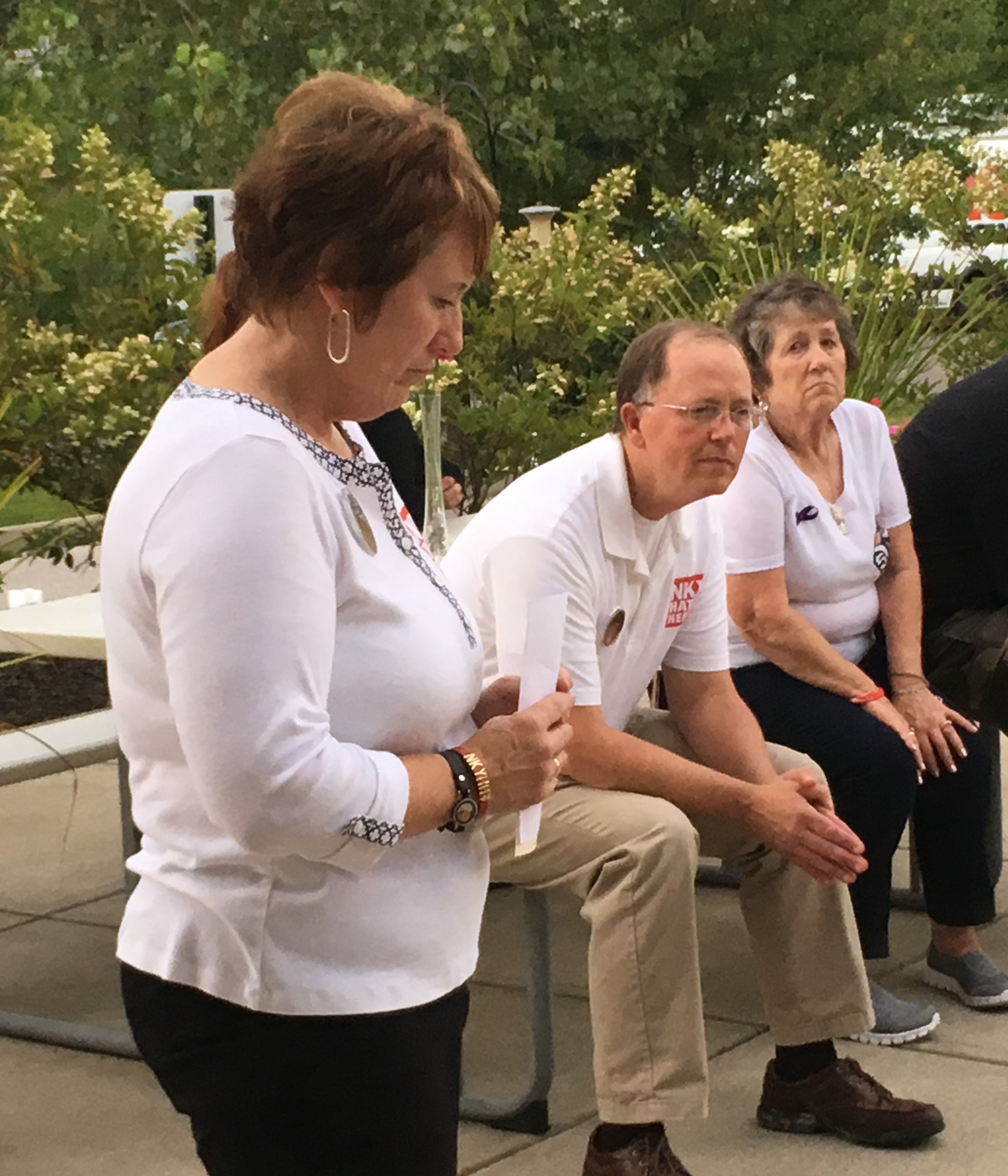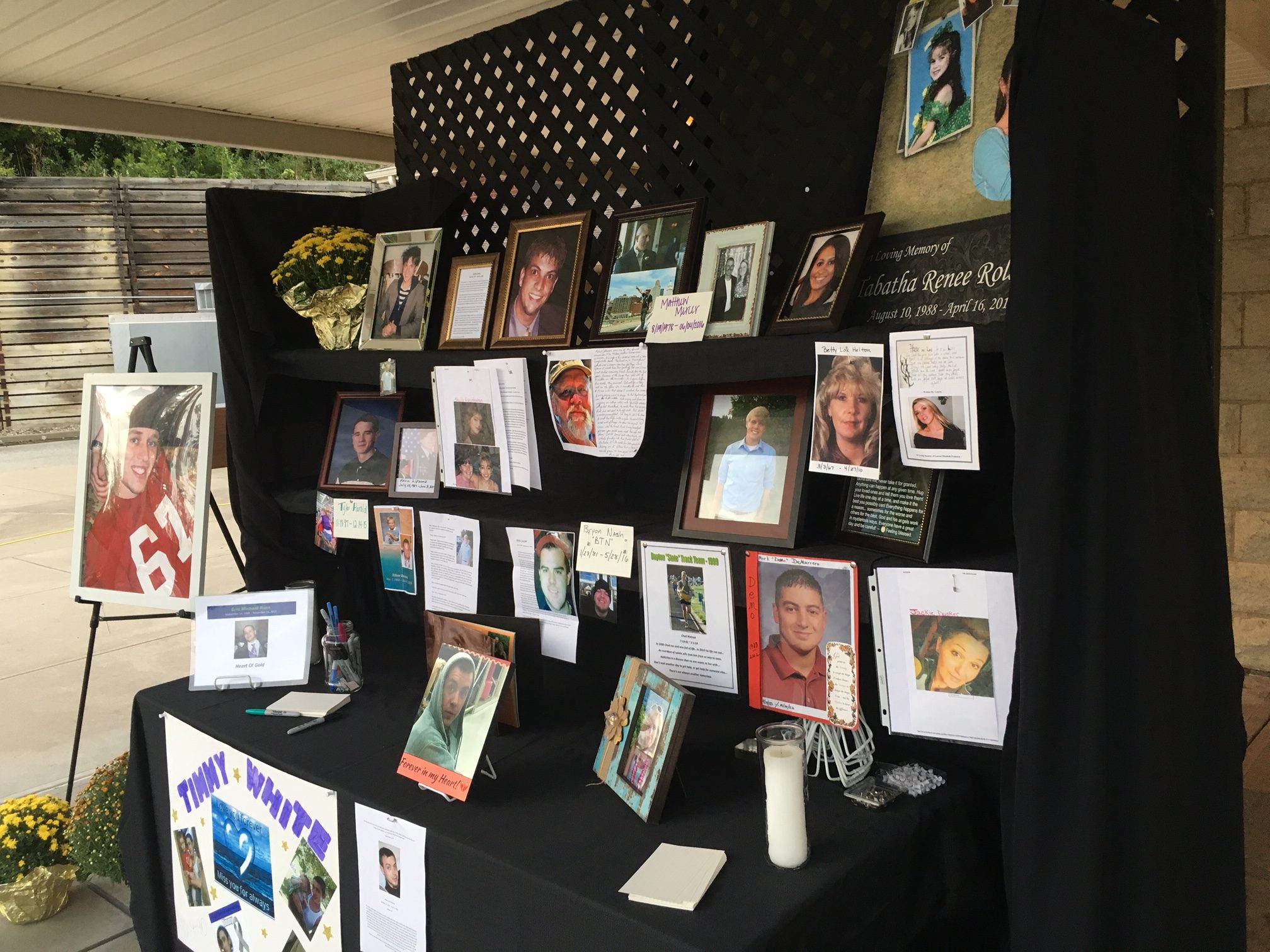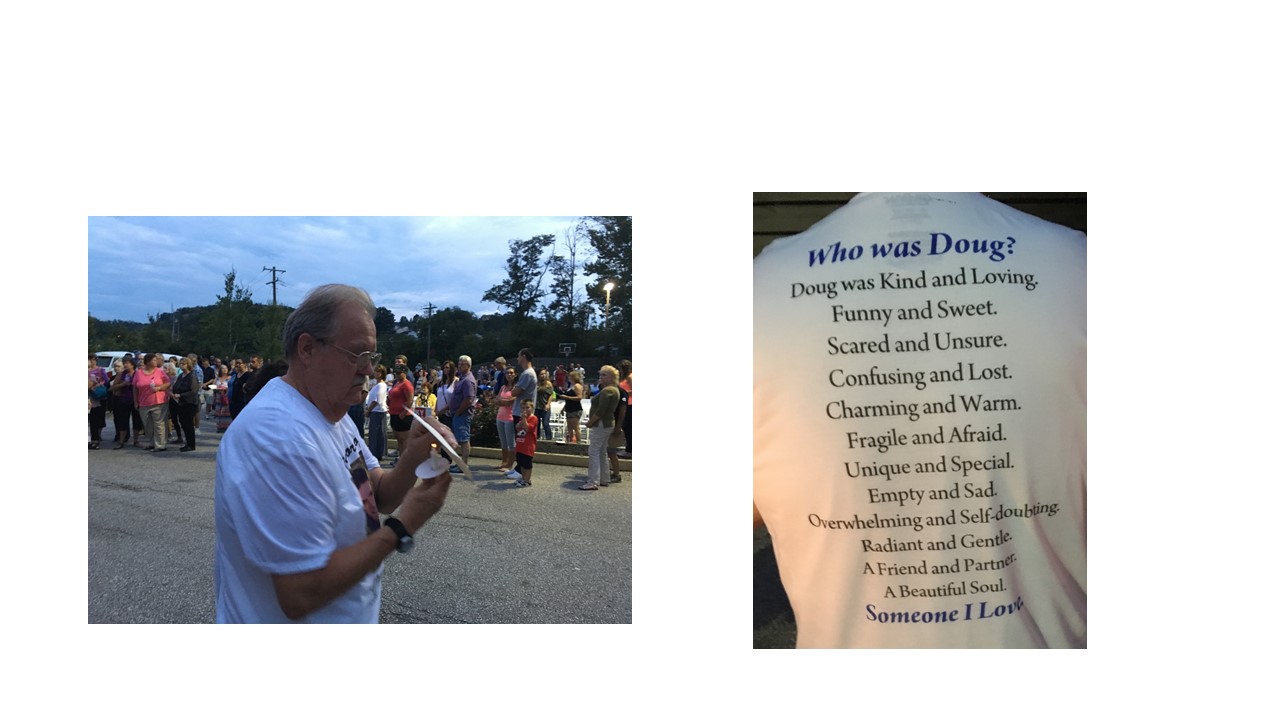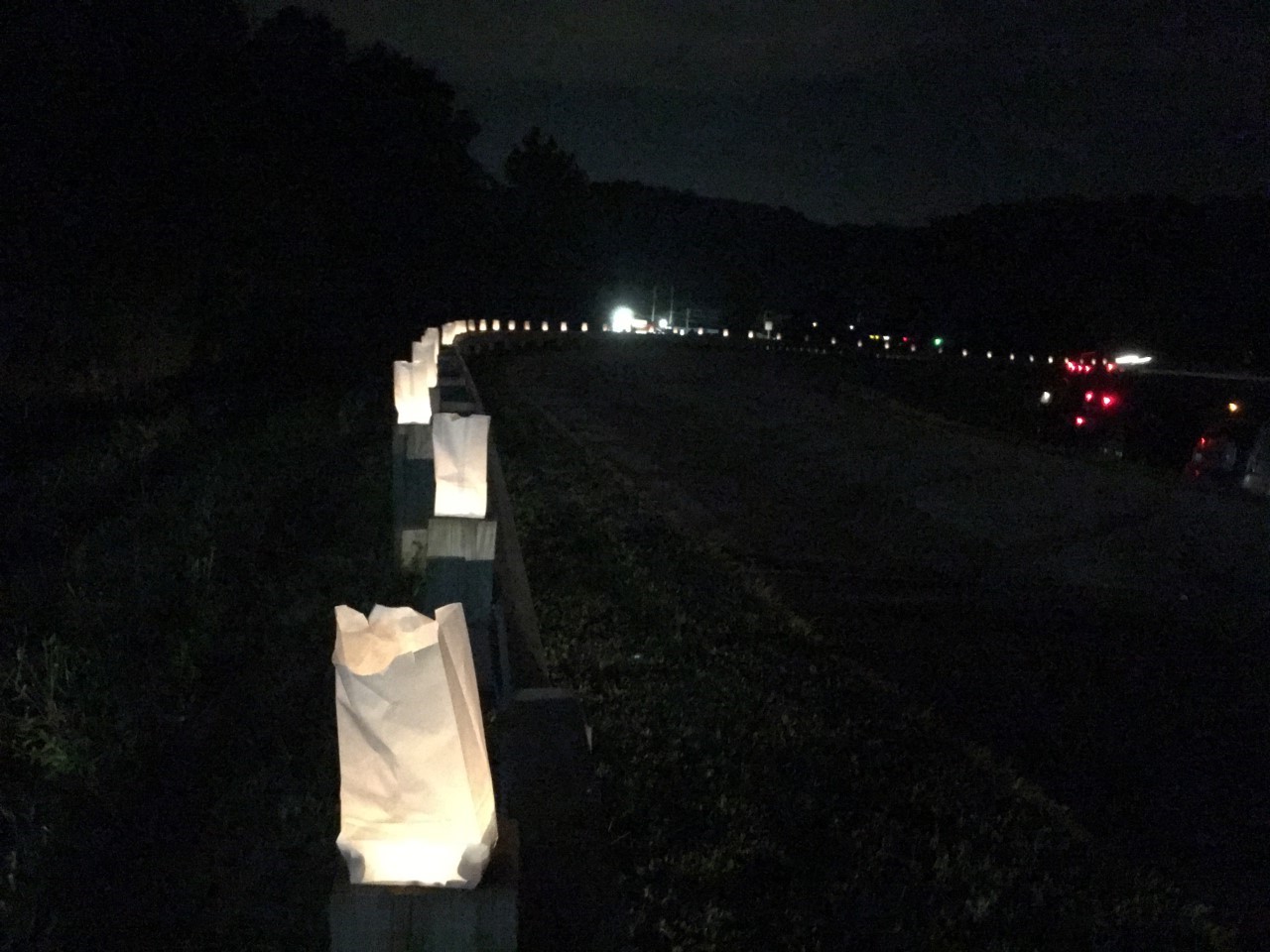By Mark Hansel
NKyTribune managing editor
One by one, they came up, took a candle and spoke the name of the person they were there to remember.
Some spoke the name of a son or daughter, others an aunt, uncle or spouse. Many mentioned more than one person.
Perhaps the most heart-wrenching of all was a youngster that couldn’t have been more than 10-years-old, who stepped to the microphone and choked out just one word, “Daddy.”

That was the scene Wednesday at Transitions Grateful Life Center in Erlanger during a Candlelight Vigil remembering those who have lost their lives to the disease of addiction.
The event, which coincided with International Overdose Awareness day included more than 250 people from throughout the region.
Holly Specht, who founded NKY Hates Heroin with family members after her son Nicholas died from an overdose in 2013, said organizers usually strive for a strong turnout at community events.
Specht said the large crowd at this gathering, however, gave a glimpse into just how many people have lost someone to addiction.
“Our numbers are getting so large, we’ve outgrown holding events inside the building and that’s a sad fact,” Specht said. “It is comforting for everyone because they feel safe here. They don’t feel alone, they don’t feel judged; there is no stigma here.
NKY Hates Heroin co-sponsored the vigil with Transitions, Inc. and People Enduring Addiction Consequences Everyday (PEACE).

A table set up for guests to share memories of loved ones demonstrated that addiction knows no demographic boundaries. Some victims were senior citizens, others just teenagers.
Some of those in attendance have been dealing with a loss for several years, but for others, the wounds were still fresh.
Anna and Boyd Davis of Union lost their son, Doug Davis to addiction on April 14, at age 38. Anna Davis fought through tears as she explained that her son became addicted to oxycodone after taking it for a year following surgery.
“He couldn’t afford to buy it anymore, so somebody told him to try heroin,” she said. “He was on it for three years, in and out of the hospital and detox. The last time he was in the hospital in ICU and they think that he had a heart attack caused by the heroin addiction.
“I found him dead the day after he left the hospital.”

Charlotte Wethington said effective treatment that is available for everyone who needs it is the only way to win the battle against addiction.
She started working to “change the system” after her son Matthew “Casey” Wethington, died from a heroin overdose in 2002.
“This is just a microcosm of what is going on around us,” Wethington said. “It’s needless because we have a treatable illness here. It’s great that Narcan brings people back from an overdose, but if we don’t have someplace for them to get treatment, it’s like saving them from drowning and then throwing them back into the deep end.”
Wethington initiated The Matthew Casey Wethington Act for Substance Abuse Intervention, which was enacted by the Kentucky General Assembly in 2004. “Casey’ Law” allows for the involuntary incarceration of someone who is addicted, by a family member or loved one, without criminal charges.
For the reporting year that ended in June, 2015, 1,087 people died of an overdose in Kentucky, according to the state’s Office of Drug Control Policy. Boone, Campbell and Kenton counties were in the top five statewide for overdose deaths per 100,000 people, in the reporting period.
St. Elizabeth Healthcare statistics indicate the number of people treated for an overdose in its emergency departments rose from 252 in 2011 to 1,168 in 2015.
Dr. Jeremy Engel of St. Elizabeth Physicians was among the first to recognize the impact of the opioid addiction epidemic in Northern Kentucky. He said those represented at the vigil only tell part of the story.
“For every person that has died from an overdose, there are probably 10 times that number that have had their lives destroyed by addiction,” Engel said.
More information on addiction treatment and support is available at http://nkyhatesheroin.com/ or http://transitionsky.org/ .
Contact Mark Hansel at mark.hansel@nkytrib.com


















